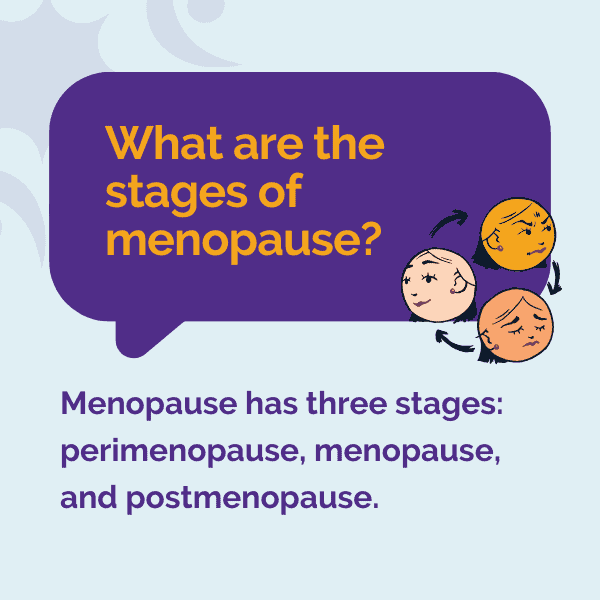Menopause isn’t just about aging and changes in your body. Many women seek hormone therapy and other treatments to lessen and alleviate symptoms of menopause. As you go through this journey, it’s not just about aging; it’s a testament to the strength and resilience that you carry within you.
A recent study provides insight into the intricate relationship between hormone therapy and cardiovascular well-being during and after menopause. Though there are potential benefits and risks associated with hormone therapy, our team of all-female doctors are dedicated to helping you make informed decisions regarding your health during this transformative stage of life.
These findings underscore the importance of personalized healthcare guidance, a topic we explore in this in-depth menopause guide.

Embracing Change: Your In-Depth Guide to Menopause
At Women First of Louisville, we understand that this transition can bring both questions and challenges. That’s why we’ve crafted this extensive menopause guide and answered as many questions as possible to provide you with valuable insights, expert advice, and a wealth of resources to navigate this stage of life with confidence.
Watch the videos below and take a look at our tips for managing menopause.
Embracing Change: Your In-Depth Guide to Menopause
At Women First Obstetrics and Gynecology of Louisville, we understand that this transition can bring both questions and challenges. That’s why we’ve crafted this extensive menopause guide and answered as many questions as possible to provide you with valuable insights, expert advice, and a wealth of resources to navigate this stage of life with confidence.
Watch the videos below and take a look at our tips for managing menopause and menopause symptoms.
What is Menopause?
Women experience a natural biological process called menopause. This stage of life marks the end of a woman’s reproductive years. It’s a stage in life that every woman will go through, but it’s essential to understand what it means for you.
Menopause occurs naturally when the female body ceases menstruation when ovaries stop releasing eggs or it can happen surgically at any age when both ovaries are removed. This change typically occurs between the ages of 45 and 55 on average, though it can vary widely from person to person.
This transition signifies a shift in a woman’s hormonal balance, particularly a decline in estrogen and progesterone production, leading to various physical and emotional changes.
Another study on menopause and cognitive function published by National Institute of Health (NIH) also revealed the impact of menopause on cognitive function. Researchers found a “tendency toward worsened cognitive performance has been reported in women during menopause.”
To provide you with a more comprehensive understanding of this transformative phase, we’ve included a video featuring one of our providers, Audrey Fenwick, PA-C, NCMP, who will guide you through the intricacies of menopause. Knowledge is power, and knowing what to expect is the first step in embracing this unique journey.
Symptoms of Menopause
Menopause brings about a spectrum of physical, emotional, and psychological changes that vary from woman to woman. Understanding these symptoms is crucial for navigating this phase with grace and knowledge.
Common Physical Symptoms:
Physical symptoms can include hot flashes, night sweats, skipping periods, vaginal dryness, and changes in sexual desire. These experiences can be managed effectively with the right guidance and support.
- Hot flashes
- Night sweats
- Skipping periods
- Vaginal dryness
- Changes in sexual desire
Emotional and Psychological Symptoms:
Menopause can also manifest emotionally and psychologically, leading to mood swings, irritability, anxiety, and even depression in some cases. It’s essential to recognize these emotional changes and seek the necessary support when needed.
- Mood swings
- Irritability
- Anxiety
- Depression
Does Getting a Hysterectomy Lead to Early Menopause?
Getting a hysterectomy doesn’t cause menopause. It is the removal of both ovaries that causes menopause at any age.
When Do Women Experience Menopause?
Age Range for Menopause Onset:
Menopause typically occurs between the ages of 45 and 55, with the average age being around 51. However, individual experiences may vary, and some women may enter menopause earlier or later.
 Early Menopause and Its Causes:
Early Menopause and Its Causes:
Early menopause, defined as menopause occurring before the age of 45, can be influenced by various factors. These may include genetics, medical conditions, chemotherapy, or radiation therapy. Understanding the potential causes of early menopause is essential for proactive healthcare decisions. It’s important to understand that removal of both ovaries causes menopause at any age.
Interactive Hormonal Changes Timeline:
Understanding when menopause typically occurs and the factors that can influence its timing is important for women at various stages of life. Whether you are approaching menopause or supporting a loved one going through it, here are a couple more videos to learn more about stages of menopause and menopause symptoms.
Can You Prevent Early Menopause?
Menopause is part of natural aging and cannot be prevented. Learning the factors that influence early menopause and adopting a proactive approach to reproductive health can empower you to make informed decisions and take steps to support your well-being.
Below are some tips and resources to learn more about how you can potentially influence the timing of menopause and maintain your health throughout the transition.
What is Early Menopause?
Early menopause, defined as menopause occurring before the age of 45, is a significant life event that can have far-reaching implications for a woman’s health and well-being. While menopause cannot be prevented, understanding the contributing factors is crucial for both awareness and potential risk reduction. Here are the primary factors that can influence early menopause:
Factors Influencing Early Menopause:
Tips for Maintaining Reproductive Health:
Even though menopause cannot be prevented, there are steps you can take to support reproductive health. We provide valuable tips and recommendations for maintaining hormonal balance and overall well-being. These strategies can help optimize your reproductive health and potentially delay the onset of menopause.
Remember that every woman’s reproductive journey is unique, and there’s no one-size-fits-all approach. These tips are general guidelines to help you maintain reproductive health, but it’s essential to consult with a healthcare provider like Women First to tailor a plan that suits your individual needs and circumstances.
Influence of Lifestyle Choices on Menopause
By prioritizing a balanced diet, regular exercise, effective stress management, and maintaining a healthy body weight, you empower yourself to embrace menopause with vitality and confidence. Your lifestyle choices can shape a more positive menopausal experience, allowing you to transition through this life stage with grace and well-being.
Best Ways to Manage Menopause
Menopause is a transformative phase that brings with it a unique set of physical and emotional changes. While it’s a natural part of a woman’s life, the way you approach and manage menopause can significantly impact your overall well-being. In this section, we explore the best ways to navigate this journey effectively, ensuring that you embrace menopause with confidence and vitality.
Lifestyle Changes
One of the most powerful tools for managing menopause is making positive lifestyle changes. This includes adopting a well-balanced diet, engaging in regular exercise, and prioritizing stress management. A healthy diet rich in essential nutrients not only supports overall health but also aids in managing specific menopausal symptoms, such as hot flashes and mood swings.
Regular exercise helps maintain physical fitness, supports mood stability, and can alleviate discomfort associated with menopause. Additionally, stress management techniques, such as meditation or mindfulness, can help reduce the impact of stress on hormonal balance.
Medical Guidance
While lifestyle changes are essential, it’s crucial to emphasize the importance of medical guidance during menopause. Every woman’s experience of menopause is unique, and some may require medical interventions or therapies to manage symptoms effectively. Hormone replacement therapy (HRT) is one option that can help alleviate severe menopausal symptoms and improve quality of life for some women. However, the decision to pursue HRT should be made in consultation with a healthcare provider, considering individual health factors and potential risks and benefits.
What to Do When Going Through Menopause
Experiencing menopausal symptoms can be both physically and emotionally challenging. However, there are steps you can take to navigate this transformative phase effectively. In this section, we provide guidance on what to do when going through menopause, helping you make informed decisions about your health and well-being.
Managing Menopausal Symptoms
The first step in addressing menopausal symptoms is to understand and acknowledge what you are experiencing.
Common symptoms like hot flashes, mood swings, and sleep disturbances can be managed with lifestyle adjustments, stress-reduction techniques, and dietary changes. A clean diet, exercise, meditation, yoga, and stress-relieving activities can help during this time.
Do Menopause Symptoms Come and Go?
Take a look at response from Audrey Fenwick, one of the experienced physician assistants at Women First.
Hormone Therapy and Alternative Treatments
For women with severe or persistent symptoms, hormone therapy (HT) may be a viable option. HT involves the use of estrogen and, in some cases, progesterone to replace hormones that decline during menopause. It can effectively relieve symptoms but should be considered with caution, weighing the potential risks and benefits.
During a consultation, we’ll provide information on different HT options and discuss alternative treatments and therapies that may be suitable for managing menopausal symptoms.
Schedule a Consultation at Women First
Your well-being is our top priority, and at Women First of Louisville, we’re here to support you through all stages of your life. Our team of experienced healthcare professionals specializes in women’s health and menopause management. We encourage you to take the next step toward a healthier and more comfortable menopausal experience by scheduling a consultation with us.


